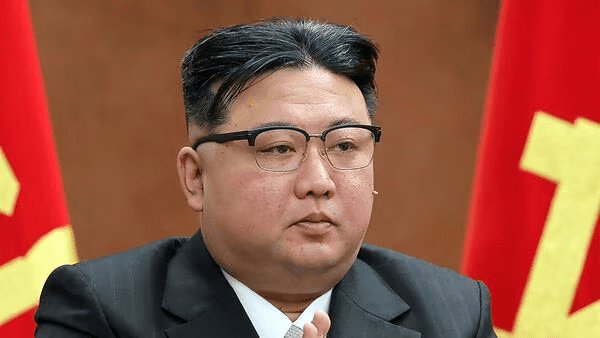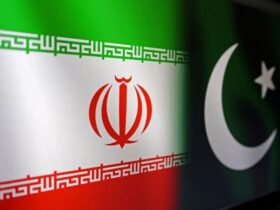In a move that has garnered international attention and raised eyebrows across the geopolitical landscape, North Korea has signaled a significant shift in its strategic priorities for 2024. Opting to focus on advancing its satellite technology over pursuing reunification with South Korea, North Korea’s new path represents a complex mix of ambition, defiance, and strategic recalibration. This decision, while not entirely unexpected given the nation’s historical trajectory and its leadership’s ambitions, raises pertinent questions about the implications for regional stability, international relations, and the future of the Korean Peninsula.
North Korea Strategic Shift: Satellites Over Reunification
North Korea’s pivot towards prioritizing satellite launches in 2024 over efforts towards Korean Peninsula reunification marks a nuanced shift in its policy orientation. Historically, the reunification of the Korean Peninsula has been a central, albeit contentious, theme in North-South relations, often serving as a symbolic aspiration that underscores the deep-rooted nationalistic sentiments on both sides of the Demilitarized Zone (DMZ). However, North Korea’s recent announcement to channel its resources and energies into satellite technology suggests a strategic reevaluation of its national objectives and geopolitical calculus.
Technological Ambition and Political Messaging
North Korea’s focus on satellite technology is not merely a pursuit of scientific achievement; it is imbued with significant political messaging and strategic intentions. Satellite launches by North Korea have historically been met with international condemnation, primarily because such activities are viewed as veiled ballistic missile tests under the guise of space exploration. The dual-use nature of missile technology means that advancements in satellite launch capabilities directly translate to enhancements in the nation’s ballistic missile program—a reality that has not gone unnoticed by the international community.
The announcement for 2024 thus serves multiple purposes: it signals North Korea’s determination to advance its technological and military capabilities, asserts its sovereignty and right to space exploration, and challenges the international sanctions regime that seeks to curb its missile program. This strategic maneuvering is also a clear message to both allies and adversaries that North Korea remains committed to expanding its strategic assets, irrespective of international opinion.
Implications for Regional Stability and International Relations
The decision to prioritize satellite launches over reunification efforts in 2024 carries profound implications for regional stability and international relations. For neighboring countries and the broader international community, North Korea’s satellite ambitions exacerbate existing security concerns, heightening tensions and contributing to the arms race in the region. The prospect of enhanced ballistic missile capabilities, under the guise of satellite launches, prompts a recalibration of security strategies among regional powers, notably South Korea, Japan, and the United States.
Moreover, this shift underscores the challenges facing diplomatic efforts aimed at denuclearization and peace-building on the Korean Peninsula. It highlights the complexities of engaging with a regime that perceives its missile and satellite capabilities as crucial to its survival and strategic leverage. As such, North Korea’s 2024 path could potentially stall, if not reverse, the fragile progress made in inter-Korean relations and international negotiations.
The Road Ahead: Challenges and Considerations
As North Korea embarks on this new path, several challenges and considerations come to the forefront. Firstly, the international community, particularly the United Nations and its member states, will be tasked with navigating the delicate balance between condemning North Korea’s defiance of sanctions and engaging in dialogue that addresses the regime’s security concerns and aspirations for technological advancement.
Secondly, the decision places additional strain on inter-Korean relations, complicating the prospects for peace and reunification. South Korea, under the weight of this strategic pivot, must reassess its approach to dialogue and cooperation with the North, balancing its own security interests with the pursuit of long-term peace on the Peninsula.
Lastly, North Korea’s focus on satellite technology raises critical questions about the role of international law and norms governing space exploration and utilization. The international community must grapple with the implications of military advancements disguised as civilian space activities, challenging the existing frameworks designed to ensure space remains a domain for peaceful and cooperative use.
Conclusion
North Korea’s decision to prioritize satellite launches over reunification efforts in 2024 reflects a strategic recalibration that has significant implications for the Korean Peninsula and beyond. This move, emblematic of the regime’s ambitions and defiance, sets the stage for a year of heightened tensions, diplomatic challenges, and a reevaluation of regional security dynamics.
As the international community responds to this development, the focus will inevitably shift to the broader questions of engagement, deterrence, and the pursuit of stability in an increasingly complex and interconnected geopolitical environment. The path chosen by North Korea in 2024 is more than a national policy decision; it is a statement of intent and a challenge to the status quo, the repercussions of which will resonate far beyond the Peninsula.
Visit Unicorn blogger for more Articles and Blogs !





























Leave a Reply